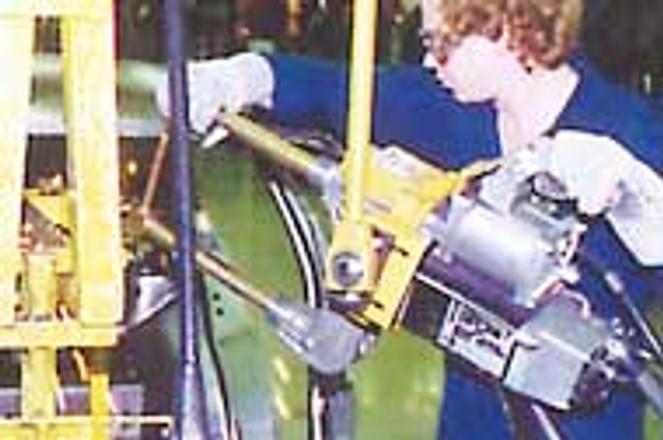VW operates plants outside Bratislava and in the central Slovak Žilina region.
LEADERS of German auto maker Volkswagen's global operations and officials from the International Metalworkers' Union met in Bratislava in early June to sign what they have called an historic charter on social rights and industrial relations, affecting VW workers and suppliers around the world.
The charter, released on June 6, establishes a basic set of labour principles for VW employees that the company promises will bring concrete benefits to labour while maintaining VW's competitiveness in the global marketplace.
The document forbids discrimination and child labour, and sets guidelines for working hours and workplace safety. It will affect around 300 companies operating under the VW umbrella, as well as firms supplying VW, as they will also be required to maintain the standards.
"Today, with the declaration of social rights and industrial relations at VW, for the first time in the international automobile industry there is a documented large-scale concept of social responsibility," said Peter Hartz, a member of VW's global corporate board of directors.
"Complex thinking is necessary. Economic, social and ecological conditions are all interconnected," he added.
The president of VW's worldwide operations, Klaus Volkert, said: "It is exemplary that a globally-functioning concern also in a period of economic difficulty announces that it wants, as an equal and independent goal of the company, to look after the security and development of its employees.
"It is also exemplary that in the VW concern, as minimum conditions, they respect the central rights of employees and unions laid out by the International Labour Organisation."
"No child labour, no discrimination and no forced labour are minimum standards which it is necessary to defend," he added.
The document was also signed by Klaus Zwickel, head of the International Metalworkers' Union, one of the world's largest labour organisations.
"Voluntary codes of behaviour can, with the idea of freely accepted obligations, mean a significant contribution to the development of human rights and to the enforcement of international labour norms. VW in this way is carrying out pioneering work," said Zwickel.
VW directly employs over 16,000 people outside Germany, including 7,500 in Slovakia. Although the charter was announced in Bratislava, however, Slovakia's labour laws already are in full compliance with VW standards, and the changes are seen as much more likely to affect operations in developing countries further afield, such as Brazil, China and South Africa.
"The meaning of the signed charter between unions and industry in VW is so big that, at the moment, we perhaps can't imagine it," said Jozef Uhrík, a member of VW Slovakia's board of directors.
"For a company or concern to secure growth in the process of globalisation, it must work economically and be competitive, but it also has to solve problems which can bring conflicts; it is twice as complicated for a global organisation functioning according to world standards.
"There's still a deficit in European industrial politics which would take advantage of the potential of the East in combination with the merits of the West, in order to make the European region successful in global competition," said Uhrík.
The auto industry in general is key to Slovakia's economic prospects, and Volkswagen is by far the most important player.
The company saw gross receipts top Sk88 billion last year, a Sk3.8 billion increase from the previous year. Volkswagen products, of which more than 90 per cent are sold outside Slovakia, generated 15 per cent of Slovakia's exports last year.
VW Slovakia has shown steady growth throughout its 11-year history and produced over 180,000 vehicles last year, beating earlier projections.
The company plans to increase production to over 200,000 vehicles this year.


